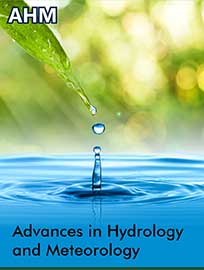 Review Article
Review Article
Urban Heat Island Effects; A De-Greening Process, Implication for Environmental Sustainability and Quality of Urban Life. A Review
Peter Nkashi Agan1*, Molly Achieng Ocukka2 and Precious Chioma Oku3
1Department of General Studies, Federal University Wukari, Taraba State, Nigeria
2Department of Environmental Engineering, Pan African University of Life and Earth Sciences including Health and Agriculture, Ibadan, Nigeria
3Department of Urban and Regional Planning, Federal University of Technology, Owerri, Nigeria
Peter Nkashi Agan, Department of General Studies, Federal University Wukari, Taraba State, Nigeria.
Received Date: May 24, 2021; Published Date: August 05, 2021
Abstract
Urban Heat Island is formed as a result of the degreening of natural vegetative surfaces, due to the development and expansion of an area into artificial impervious surfaces leading to an increase in the ambient and surface urban temperature of the city more than the adjoining rural areas. Urban surfaces are replaced by impervious surfaces such as roads, buildings, and paved surfaces while the rural surfaces are defined by the porous vegetative cover. Temperature differentials between urban and rural adjoining areas are high in urban areas due to high reflectivity and emissivity (high albedo) of urban surfaces. The impacts on humans and the environment are manifold e.g., heat stress, heat cramp, dehydration, low productivity and comfort of ambient city dwellers, reduction in vegetative cover, high evaporation, and evapotranspiration in plants and reduction in soil and water quality of urban areas.
This study critically reviewed the impacts of urban heat island on humans and the environment to reveal novel areas for future research and global replicability. Studies reviewed revealed the applicability of in-situ weather monitors (handheld digital thermometer), conventional weather stations, satellite imageries (MODIS LST and Landsat), and modeling (Weather Research/Forecasting and Urban Canopy Models) in the investigation of urban heat island impacts on human comfort and environmental sustainability.
Mitigation measures are urban forestation, parks cooling islands and gardens, tree incorporation in residential areas, and redesigning of buildings with white surfaces to reduce the temperature of urban areas. Urban heat island studies need to be redefined to accommodate changes and expansion in urban areas and emerging heat island effects in rural areas due to the rapidity in the physical and structural development of rural areas. There is a need for emphases on rural and urban canopy heat islands and the role of parking cooling islands in urban comfort and sustainability.
Keywords:Urban heat island; Park cooling island; Urbanization; Albedo; Temperature; Human comfort
-
Peter Nkashi Agan, Molly Achieng Ocukka, Precious Chioma Oku. Urban Heat Island Effects; A De-Greening Process, Implication for Environmental Sustainability and Quality of Urban Life. A Review. Adv in Hydro & Meteorol. 1(1): 2021. AHM.MS.ID.000505.
-

This work is licensed under a Creative Commons Attribution-NonCommercial 4.0 International License.






